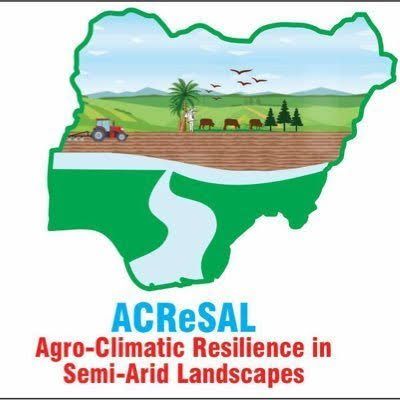
The Federal Government, in partnership with 19 northern states and the Federal Capital Territory, is set to validate the first phase of the Strategic Catchment Management Plans (SCMP) under the $700 million Agro-Climatic Resilience in Semi-Arid Landscape (ACReSAL) project.
The endorsement followed extensive consultations across participating regions. The six-year World Bankfunded initiative seeks to address climate resilience, enhance natural resource management, and drive sustainable development in northern Nigeria.
National Project Coordinator of ACReSAL, Abdulhamid Umar, emphasized the significance of catch – ment-based planning during a session in Abuja, stating, “water does not recognise political boundaries.
To avoid inter-state conflicts, the plans are scientifically designed to follow natural hydrological flows, ensuring environmental sustainability and cohesion.”
The SCMP’s pilot phase focuses on the Hadeja Jama’are catchment area, spanning Jigawa and Bauchi states, alongside Kano and Yobe states. Umar explained that communities were engaged to determine priorities such as water supply, flood control, and agriculture.
“This approach ensures investments address unique challenges while improving livelihoods. ACReSAL is designed to directly benefit 3.4 million Nigerians, with nearly half of the beneficiaries being women,” he added.
Permanent Secretary of the Federal Ministry of Environment, Mahmud Kambari, commended the initiative, describing it as a landmark effort.
“For the first time, Nigeria is developing a comprehensive catchment management plan on this scale. This framework will serve as a model for other regions,” he said.
He praised Nigerian firms, including Mecon Geology and Engineering Ltd, for delivering world-class standards in their contributions to the project.
The Permanent Secretary of the Ministry of Agriculture and Food Security, Temitope Fashedemi, lauded the ACReSAL initiative for addressing climate risks and boosting agricultural productivity in the region.
“Nigeria remains highly vulnerable to climate change, with flooding and deforestation reducing agricultural yields. This project represents a critical step toward strengthening climate resilience and fostering sustainability,” Fashedemi noted.
The validation session will conclude with a formal presentation to government officials and traditional leaders in Abuja.
With implementation running until 2028, the ACReSAL project is expected to mitigate climate impacts, improve livelihoods, and drive socio-economic growth in Nigeria’s Semi-agrid regions.
Please follow and like us:


